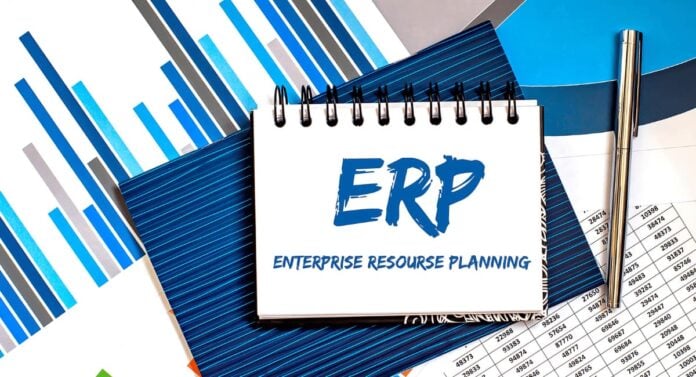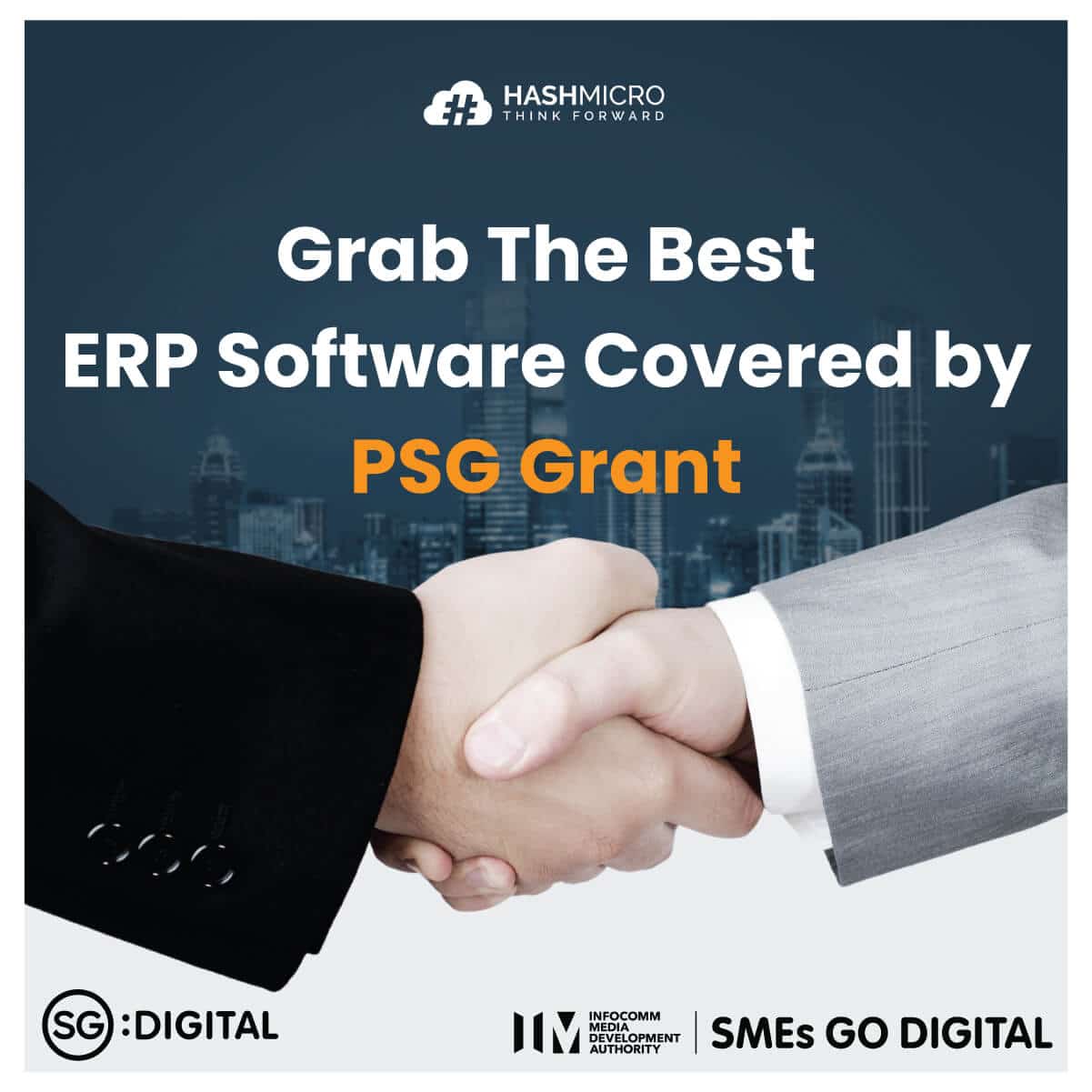Discover how Enterprise ERP solutions in Singapore cater to the diverse needs of large corporations compared to small businesses. Explore features, benefits, and tailored approaches in our comprehensive guide.
Enterprise resource planning (ERP) solutions are essential for streamlining business operations and improving efficiency. In Singapore, a thriving business hub for both large corporations and small businesses, the need for customized ERP systems becomes evident.
In this article, we will delve into the key differences in ERP needs between corporations and small businesses in the Singaporean market.
Table of Content
- The Fundamental Differences in ERP Needs: Corporations vs Small Businesses
- Key Features of Enterprise ERP for Large Scale Operation
- Scaling Up: How ERP Solutions Evolve with Business Growth
- Success Stories: Enterprise ERP Transformations in Singaporean Corporations
- Navigating the ERP Selection Process: A Guide for Different Business Sizes
- Conclusion
The Fundamental Differences in ERP Needs: Corporations vs Small Businesses
When it comes to Enterprise Resource Planning (ERP) needs, large corporations and small businesses in Singapore have distinct requirements. Understanding these differences is key to choosing the right ERP solution for your organization. In this section, we will explore the challenges and requirements faced by both large corporations and small businesses in the context of ERP.
Challenges and requirements of large corporations
Large corporations operate on a different scale, dealing with complex business processes, vast amounts of data, multiple departments, and diverse business units. The ERP systems they need must be robust and capable of seamlessly managing intricate workflows. Integration with legacy systems is also critical for these organizations as they often rely on existing infrastructure. Furthermore, scalability is essential to accommodate their constant growth and changing business needs.
Challenges and requirements of small businesses
Small businesses, on the other hand, have specific ERP needs due to their limited resources and simpler organizational structures. These enterprises prioritize cost-effectiveness and ease of implementation when choosing an ERP solution. They require user-friendly platforms that can automate core business functions, such as inventory management, finance, and human resources, without placing a heavy burden on their operations or budget.
Now that we have covered the fundamental differences in ERP needs between corporations and small businesses, let’s delve into the key features and benefits of enterprise ERP for large-scale operations in the next section.
Key Features of Enterprise ERP for Large Scale Operation
An enterprise resource planning (ERP) system is a comprehensive, integrated software solution that helps large businesses manage their core operations more efficiently. ERP systems are designed to support the specific needs of large organizations, including global operations, complex supply chains, and high-volume transactions.
While ERP systems vary in their features and functionality, they all share a common goal: to provide a centralized, real-time view of all the data and processes that make up a company’s operations. This visibility enables managers to make more informed decisions, improve communication and collaboration across departments, and ultimately drive better business results.
Enterprise ERP Key Features
Large businesses have unique requirements that ERP systems must be able to address. Here are some of the key features that enterprise ERP systems should offer:
- Global Operations Management: Large businesses often have a global footprint, with facilities and employees located around the world. An enterprise ERP solutions must be able to support global operations by managing multiple currencies, languages, and compliance regulations.
- Complex Supply Chains: Managing a large, complex supply chain is a challenge for any business. An enterprise ERP system can help by providing visibility into every stage of the supply chain, from raw materials to finished products. This visibility enables managers to identify bottlenecks and other issues, and make changes to the supply chain as needed.
- High-Volume Transactions: Enterprise ERP solutions are designed to handle high volumes of transactions, including invoices, purchase orders, and other business documents. This is essential for businesses that process a large number of transactions on a daily basis.
- Customization and Flexibility: One size does not fit all when it comes to enterprise ERP systems. These systems must be highly customizable and flexible, in order to meet the specific needs of each organization.
- Robust Security: Enterprise ERP systems store a wealth of sensitive data, making security a top priority. These systems should offer robust security features, such as role-based access control and data encryption, to protect data from unauthorized access.
- Scalability: As a business grows, its ERP system must be able to scale accordingly. Enterprise ERP systems are designed to support businesses as they expand, adding new users, modules, and functionality as needed.
- 24/7 Support: Large businesses rely on their ERP systems around the clock, 365 days a year. As such, they need an ERP provider that offers 24/7 support in case of problems or system outages.
- Reporting and Analytics: Enterprise ERP solutions generate a wealth of data that can be used to improve decision-making. These systems should offer robust reporting and analytics tools that give managers the insights they need to improve operations and drive better business results.
Scaling Up: How ERP Solutions Evolve with Business Growth
As businesses in Singapore grow and expand, their ERP needs evolve as well. To effectively manage their operations at every stage of development, organizations require ERP solutions that offer scalability and flexibility. These solutions must be able to accommodate increased data volumes, additional users, and expanding operations.
Scalability is a key factor to consider when selecting an ERP system. It ensures that the system can handle the growing demands of a business without compromising performance. With scalable ERP solutions, businesses can easily add new users, integrate new modules, and handle higher data volumes as their operations expand.
Flexibility is equally important to respond to changing business requirements. ERP systems should be adaptable and customizable to meet the evolving needs of an organization. The ability to modify workflows, dashboards, and features allows businesses to tailor the system to their specific processes and industry requirements.
By choosing ERP solutions that provide scalability and flexibility, businesses in Singapore can ensure that their systems can grow alongside their operations. This adaptability enables organizations to maximize the value of their ERP investments and maintain a competitive edge in the dynamic business landscape.
Success Stories: Enterprise ERP Transformations in Singaporean Corporations
Real-world examples of successful ERP transformations in Singaporean corporations serve as invaluable proof of how these solutions can drive business success. Let’s explore several case studies and success stories from notable organizations in Singapore that have undertaken ERP implementations, reaping the benefits of increased productivity, cost savings, improved customer satisfaction, and streamlined operations.
“Company XYZ, a leading retail giant in Singapore, implemented an enterprise ERP solution to manage their complex supply chain operations. By integrating their inventory management, procurement, and distribution systems into a centralized ERP platform, they achieved real-time visibility, reduced fulfillment cycle times, and improved inventory accuracy.”
“Another remarkable success story comes from ABC Manufacturing, a Singapore-based industrial company. Their adoption of a tailor-made ERP system allowed them to streamline their manufacturing processes, optimize resource allocation, and enhance overall operational efficiency. As a result, they experienced significant cost savings, increased workforce productivity, and better decision-making capabilities.”
“In the banking sector, DEF Bank implemented an ERP solution that integrated their core banking systems, risk management processes, and customer relationship management. This enabled them to offer personalized banking services, improve security measures, and deliver enhanced customer experiences. Their ERP transformation helped them stay ahead in an increasingly competitive market.”
“The success of ERP implementations in Singaporean corporations extends beyond retail, manufacturing, and banking. Service-based organizations like GHI Consulting have also benefited from ERP systems. By automating project management, resource allocation, and client billing processes, GHI Consulting achieved higher project profitability, improved resource utilization, and seamless collaboration across teams.”
These success stories showcase the effectiveness of tailored ERP solutions in addressing the unique needs of Singaporean businesses. By embracing ERP transformations, corporations in Singapore can unlock their full potential, drive growth, and remain competitive in today’s dynamic business landscape.
Navigating the ERP Selection Process: A Guide for Different Business Sizes
Selecting the right ERP solution is crucial for both large corporations and small businesses in Singapore. In order to make an informed decision, it is important to understand the ERP selection process and consider key factors that align with your business needs. This comprehensive guide will walk you through the steps involved in choosing the right ERP software system for your organization, whether you are a large corporation or a small business.
- Assess Your Business Needs: Before embarking on the ERP selection process, assess your specific business requirements. Identify the areas where your business faces challenges and where you need improvement. Consider factors such as the size of your organization, the complexity of your processes, and the scalability you require.
- Research ERP Vendors: Conduct thorough research on the best ERP software in Singapore. Look for vendors with a proven track record and experience in catering to businesses similar to yours. Take into account factors like customer reviews, industry reputation, and the range of ERP solutions they offer.
- Identify Key Features: Make a list of the key features and functionalities that are important to your business. Consider aspects such as financial management, supply chain integration, human resources, and reporting capabilities. This will help you narrow down the options and choose an ERP system that meets your specific needs.
- Evaluate Implementation Strategies: Consider the implementation strategies offered by ERP vendors. Assess their approach to deployment, training, and ongoing support. Determine if their implementation strategy aligns with your business goals and if it will minimize disruption to your operations during the transition phase.
- Consider Customization: Evaluate the flexibility and customizability of the ERP systems on offer. Determine if the vendor can tailor the ERP solution to meet the unique needs of your business. Customization can ensure that the ERP system seamlessly integrates with your existing processes and workflows.
- Request Demonstrations and Trials: Arrange demos and trials with shortlisted ERP vendors to gain firsthand experience of their systems. This will help you assess the user interface, functionality, and overall usability of the ERP solution. Request references from existing clients to validate the vendor’s claims.
- Consider Total Cost of Ownership: Take into account the total cost of ownership when selecting an ERP system. Evaluate the upfront costs, ongoing maintenance fees, and any additional expenses related to customization, training, and support. Ensure that the ERP solution fits within your budget and provides a reasonable return on investment.
- Make a Decision: Based on the evaluations, demonstrations, and cost considerations, make a well-informed decision. Select the ERP vendor and system that best aligns with your business needs, offers the necessary features, and provides reliable support for the future.
By following this guide, you can navigate the ERP selection process and choose an ERP system that empowers your business to streamline operations, enhance productivity, and drive growth.
Conclusion
In conclusion, Enterprise ERP solutions in Singapore provide tailored solutions to meet the diverse needs of large corporations and small businesses. By understanding the fundamental differences in ERP needs and exploring key features, organizations can make informed decisions when selecting and implementing ERP solutions.
For large corporations with complex business processes, scalability and integration are crucial. Enterprise ERP systems offer advanced financial management capabilities, supply chain integration, CRM, and business intelligence tools. These features enable real-time insights, optimized resource allocation, improved decision-making, and enhanced customer relationship management.
With HashMicro ERP solutions, organizations in Singapore can optimize their operations, drive growth, and stay competitive in the dynamic business landscape. Whether it is a large corporation or a small business, choosing the HashMicro ERP system and implementing it effectively is key to achieving operational efficiency and success. Try the free demo now!


















